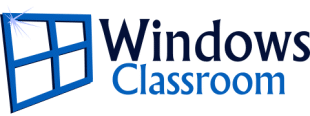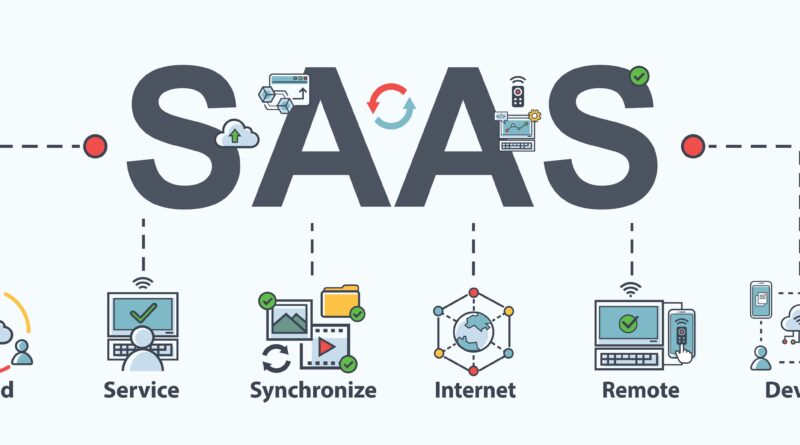The Expansive Advantages of Establishing a SaaS Company
In an ever-evolving technological landscape, the rise of Software as a Service (SaaS) has been nothing short of transformative. Offering a plethora of benefits to both businesses and consumers, SaaS has revolutionized how software is developed, deployed, and utilized.
In this comprehensive exploration, you can delve deeper into the multifaceted advantages of creating a SaaS company, shedding light on why it stands as a lucrative venture for entrepreneurs seeking to leave an indelible mark in the tech industry.
Table of Contents
Scalability
One of the most compelling features of the SaaS model is its inherent scalability. Unlike traditional software models that necessitate significant upfront investments in infrastructure and resources, SaaS operates on a subscription-based framework. This means that as your customer base expands, scaling your operations becomes a seamless process, devoid of prohibitive costs. The capacity to effortlessly accommodate fluctuating demands empowers SaaS companies to extend their reach swiftly and capitalize on emerging opportunities without being encumbered by infrastructure constraints.
Content marketing for SaaS companies involves crafting compelling and informative content to attract, engage, and convert target audiences, driving brand awareness, customer acquisition, and retention.
Cost-effectiveness
Building and maintaining conventional software can often prove to be financially burdensome, particularly for startups and small businesses. SaaS alleviates this financial strain by eliminating the need for substantial upfront expenditures on hardware, software licenses, and infrastructure. Furthermore, the pay-as-you-go pricing model typical of SaaS offerings renders them more economically viable and accessible to a wider spectrum of clientele. By redirecting resources formerly allocated to overheads towards innovation and growth initiatives, SaaS companies can foster a culture of continual advancement and evolution.
Accessibility and Convenience
SaaS solutions transcend the confines of traditional software accessibility by offering users the freedom to access applications from any device with an internet connection. Whether it be a desktop computer, laptop, tablet, or smartphone, users can seamlessly interact with SaaS applications, transcending spatial barriers and fostering unparalleled convenience and collaboration. This pervasive accessibility not only enhances user experience but also engenders greater adoption rates and customer satisfaction, thereby fortifying long-term loyalty and retention.
Automatic Updates and Maintenance
Unlike traditional software that necessitates manual updates and maintenance, SaaS solutions streamline these processes by entrusting them to the purview of the service provider. Through remote management, SaaS vendors ensure that customers consistently have access to the latest features and security patches without experiencing operational disruptions. This hands-off approach to maintenance liberates both businesses and users from the burdens of upkeep, enabling them to allocate time and resources towards more strategic endeavors.
You Might Also Like: A guide to choose software in 2024
Global Reach
Leveraging the omnipresence of the internet, SaaS companies possess the inherent capability to transcend geographical constraints and cater to a global audience. Through the utilization of cloud infrastructure and adept localization strategies, SaaS providers can tailor their offerings to align with the distinct needs and preferences of diverse customer segments across the globe. This expansive reach not only facilitates market expansion but also engenders cultural inclusivity, thereby fostering a sense of global interconnectedness and resonance.
Agility and Innovation
The iterative nature of the SaaS model endows companies with unparalleled agility, enabling them to respond swiftly to market dynamics and customer feedback. By harnessing real-time data insights, SaaS providers can glean invaluable intelligence that informs product development and enhancement initiatives. This iterative approach to innovation empowers SaaS companies to remain at the vanguard of technological advancement, delivering cutting-edge solutions that resonate deeply with evolving consumer needs and preferences.
Predictable Revenue Streams
In stark contrast to the sporadic revenue fluctuations characteristic of one-time software purchases, SaaS subscriptions yield a steady stream of recurring revenue over time. This predictable revenue model not only enhances financial stability but also facilitates more accurate forecasting and investment planning. Moreover, by leveraging tiered pricing structures and strategically upselling additional features or services, SaaS providers can maximize customer lifetime value and cultivate enduring relationships with their clientele.
Enhanced Security and Compliance
With data security and privacy emerging as paramount concerns in today’s digital milieu, SaaS companies prioritize the fortification of their security infrastructure and adherence to stringent compliance protocols. By implementing robust security measures and compliance frameworks, SaaS providers assuage customer concerns regarding data integrity and regulatory adherence. Consequently, by instilling a sense of trust and confidence, SaaS companies foster enduring relationships with their clientele, thereby fortifying their competitive positioning in the market.
Customer-Centric Approach
Central to the ethos of SaaS companies is a steadfast commitment to customer satisfaction and retention. By delivering personalized onboarding experiences, responsive customer support, and continual product enhancements, SaaS providers endeavor to exceed customer expectations and nurture long-term loyalty. Through attentive listening and receptivity to customer feedback, SaaS companies cultivate a culture of continuous improvement, ensuring that their offerings remain aligned with evolving consumer needs and preferences.
Ecosystem Integration
SaaS applications serve as pivotal conduits for the creation of interconnected software ecosystems that optimize workflows and enhance operational efficiency. By seamlessly integrating with a myriad of software systems and platforms, SaaS solutions facilitate data sharing and interoperability across disparate domains. This ecosystem integration engenders synergistic collaborations that catalyze innovation and drive transformative outcomes across various business functions.
Flexibility and Customization
SaaS platforms offer unparalleled flexibility and customization capabilities, allowing businesses to tailor solutions to meet their specific needs and requirements. Unlike traditional software, which often comes with rigid functionalities, SaaS applications can be easily configured and customized to adapt to evolving business processes and preferences. Through intuitive user interfaces and robust customization options, SaaS companies empower users to personalize their experiences, fostering a sense of ownership and alignment with organizational objectives. Furthermore, the modular architecture of many SaaS solutions enables businesses to integrate third-party plugins and extensions seamlessly, further augmenting their functionality and versatility. This flexibility not only enhances user satisfaction but also enables businesses to optimize workflows and drive operational efficiencies, thereby maximizing the value derived from their SaaS investments.
In conclusion, the advantages of establishing a SaaS company are far-reaching and multifaceted, spanning scalability, cost-effectiveness, accessibility, innovation, and beyond. By embracing the SaaS paradigm, entrepreneurs can unlock unprecedented opportunities for growth, differentiation, and value creation in an increasingly competitive marketplace. As a catalyst for efficiency, agility, and customer-centricity, SaaS epitomizes the pinnacle of technological innovation, positioning itself as the preeminent driver of digital transformation in the contemporary era.
Follow Us On:
